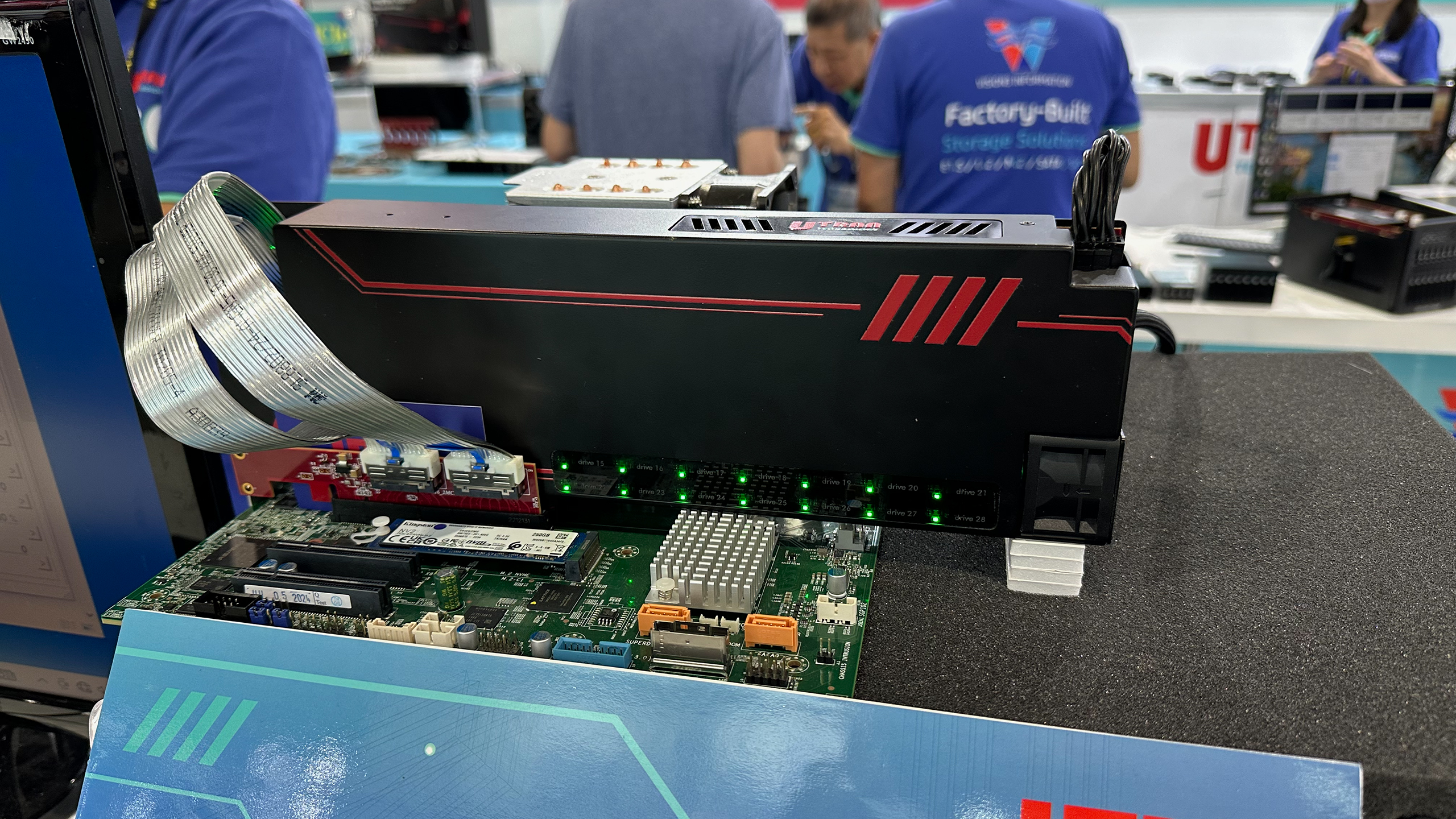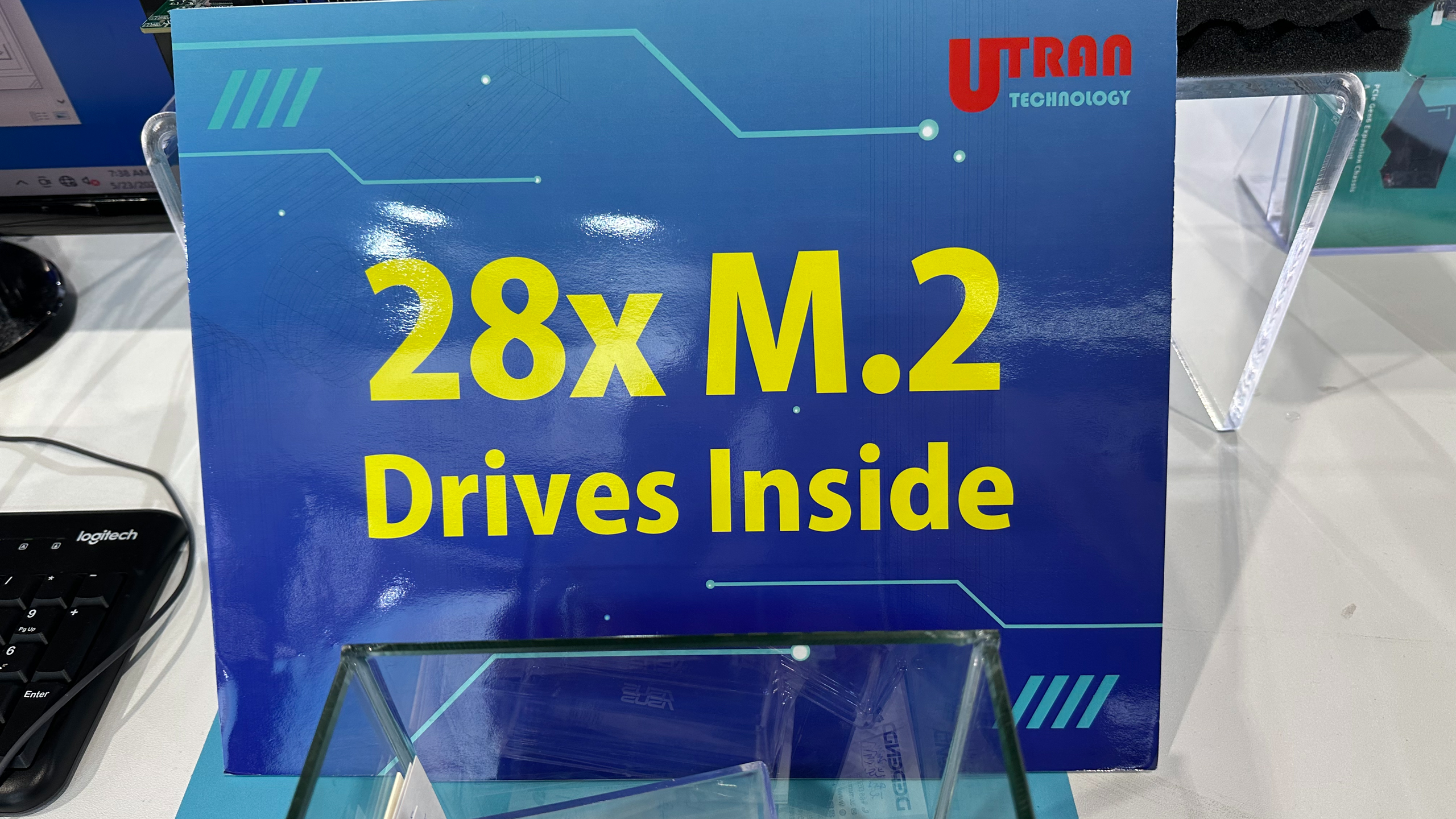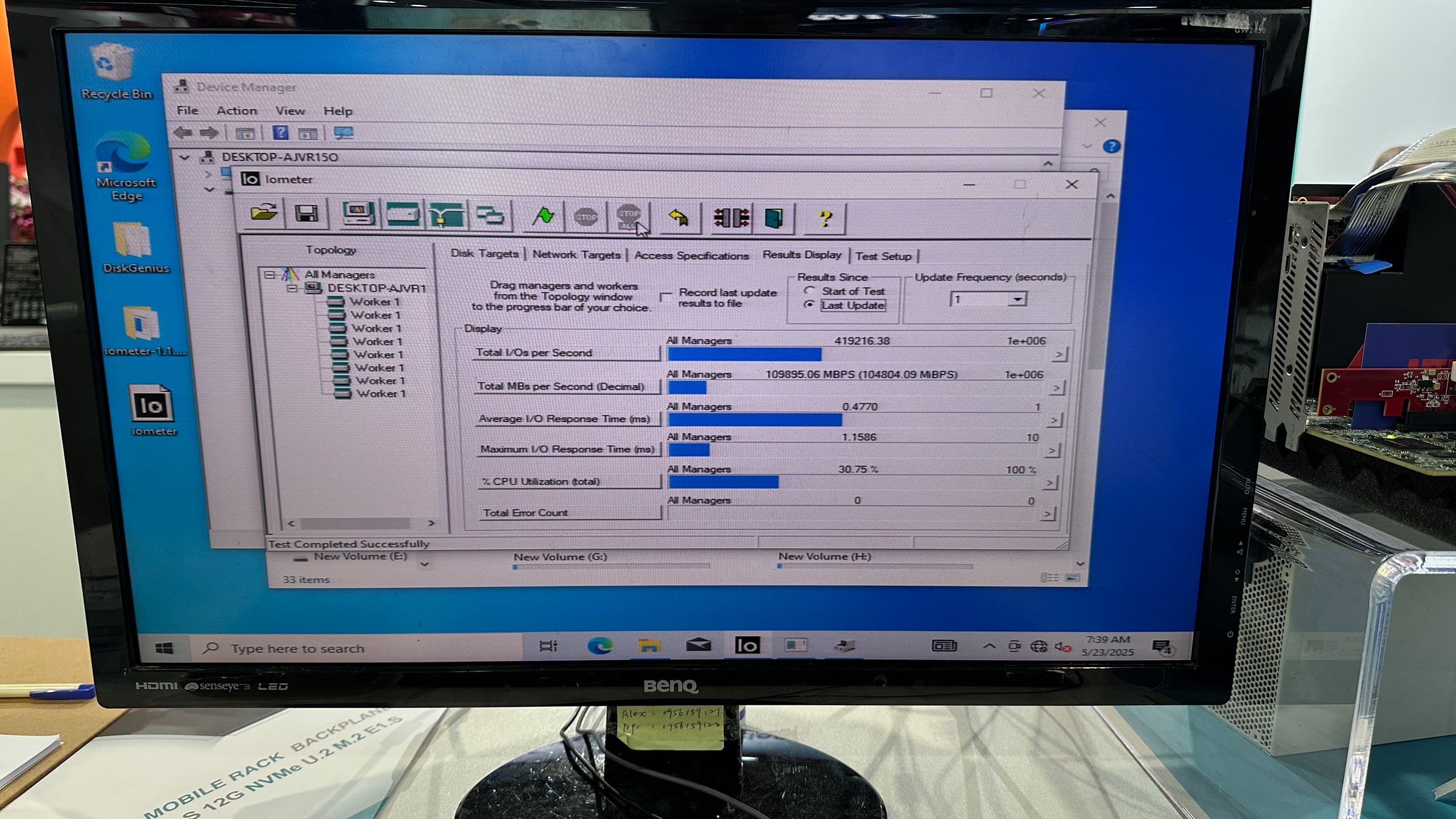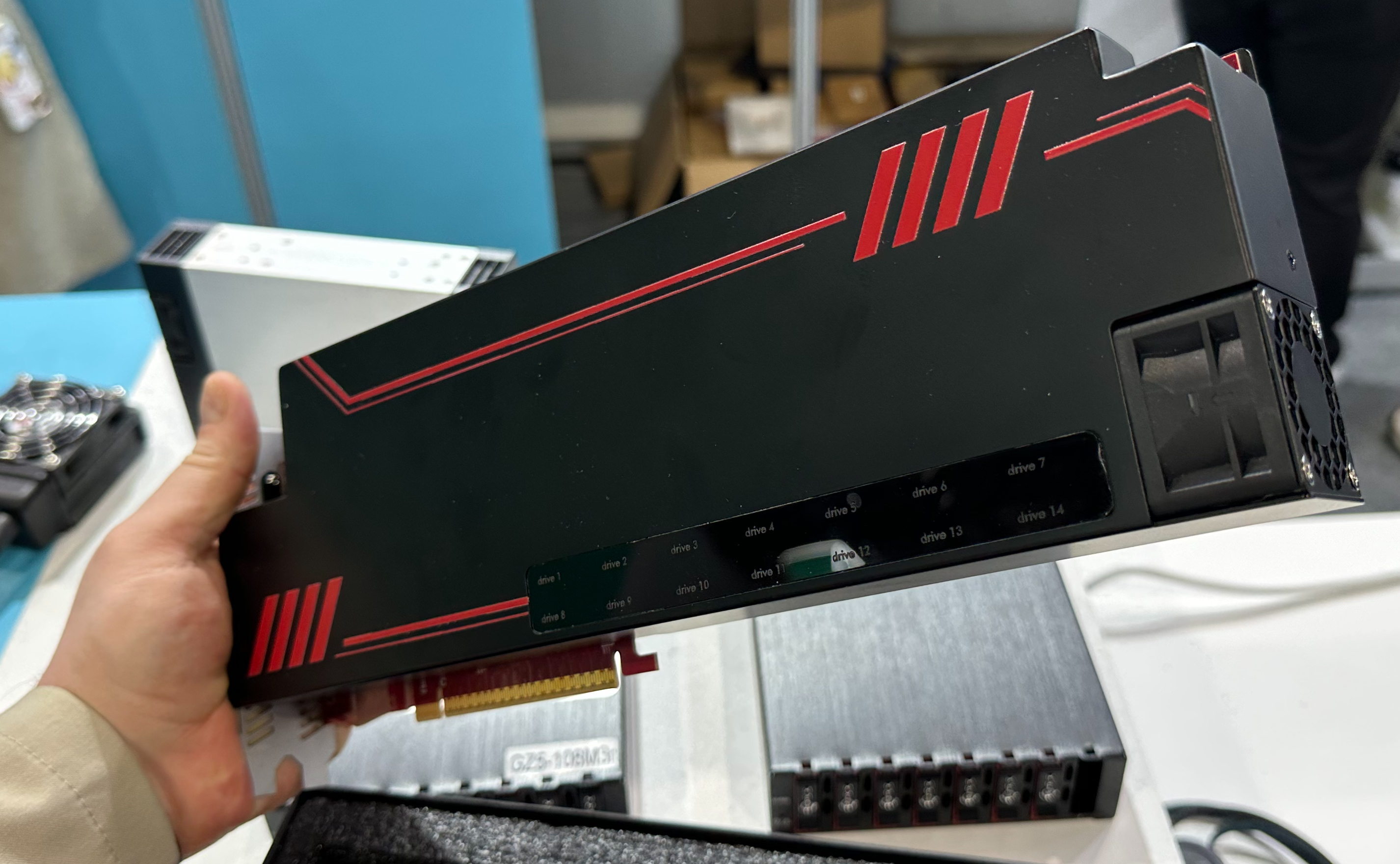
Demand for high-performance, high-capacity storage devices is growing, and to meet it, manufacturers sometimes go to rather extreme ways. Take a look at Utran Technology, which introduced a PCIe 5.0 x16 add-in card at Computex that packs 28 M.2 NVMe SSDs offering read and write throughput of 109 GB/s and storage capacity of up to 224 TB.

At the heart of the device is the Broadcom PEX89144 — a 144-lane PCIe 5.0 switch to manage connectivity and bandwidth distribution across all drives — that enables simultaneous access to all 28 SSDs through a PCIe x16 slot and two x8 cables. Such a topology enables the unit to bypass typical lane and slot limitations while maintaining physical compatibility with all systems supporting full height full length (FHFL) cards.
As far as performance concerns, the card (well, rather a system) delivers an aggregate sequential read throughput of over 109,600 MB/s (about 109.6 GB/s) and more than 418,000 IOPS, as shown in the Iometer benchmark performed by the company. In addition, the unit has an average I/O response time of just 0.48 milliseconds, highlighting exceptional latencies enabled by the PEX89144 switch.

CPU usage during the test performed by the company hovered around 30%, suggesting headroom for parallel compute tasks or additional I/O operations. This level of performance, combined with a relatively low latency, makes the device quite an appealing choice for a variety of datacenter applications that require both capacity and performance.
The card is, of course, power hungry. Utran says it can draw about 400W, though we can only wonder from where it draws that power, considering the fact that it only has one eight-pin auxiliary PCIe power connector.
The dense layout and a compact cooling system using a radiator and a high-pressure fan enable the device to work in rack-scale storage deployments, so with eight of such cards, one can store 1.792PB of data. On the one hand, such storage density is not really high, though keeping in mind the very high performance offered by such a storage subsystem, this can make sense for such storage applications.

There are still some things to keep in mind about the card. First up, it is not hot swappable. Secondly, it does not seem that there is power loss protection on the card level, so one must use SSDs with power loss protection on the drive level. Assuming that one uses ATP SSDs that can actually monitor power levels remaining in capacitors, enabling their power loss protection, this may well be quite a reliable storage solution. Furthermore, the drive supports management functions like USB terminal control, which could enable external monitoring or firmware updates. Also, the card is cooled down using a single high-pressure fan. Such fans are widely used in the datacenter industry.
Utran plans to start selling its 28-way M.2 adapter this summer for a rather eye-watering price of around $3,000. Then again, the Broadcom PEX89144 is not a cheap solution.
Follow Tom's Hardware on Google News to get our up-to-date news, analysis, and reviews in your feeds. Make sure to click the Follow button.







